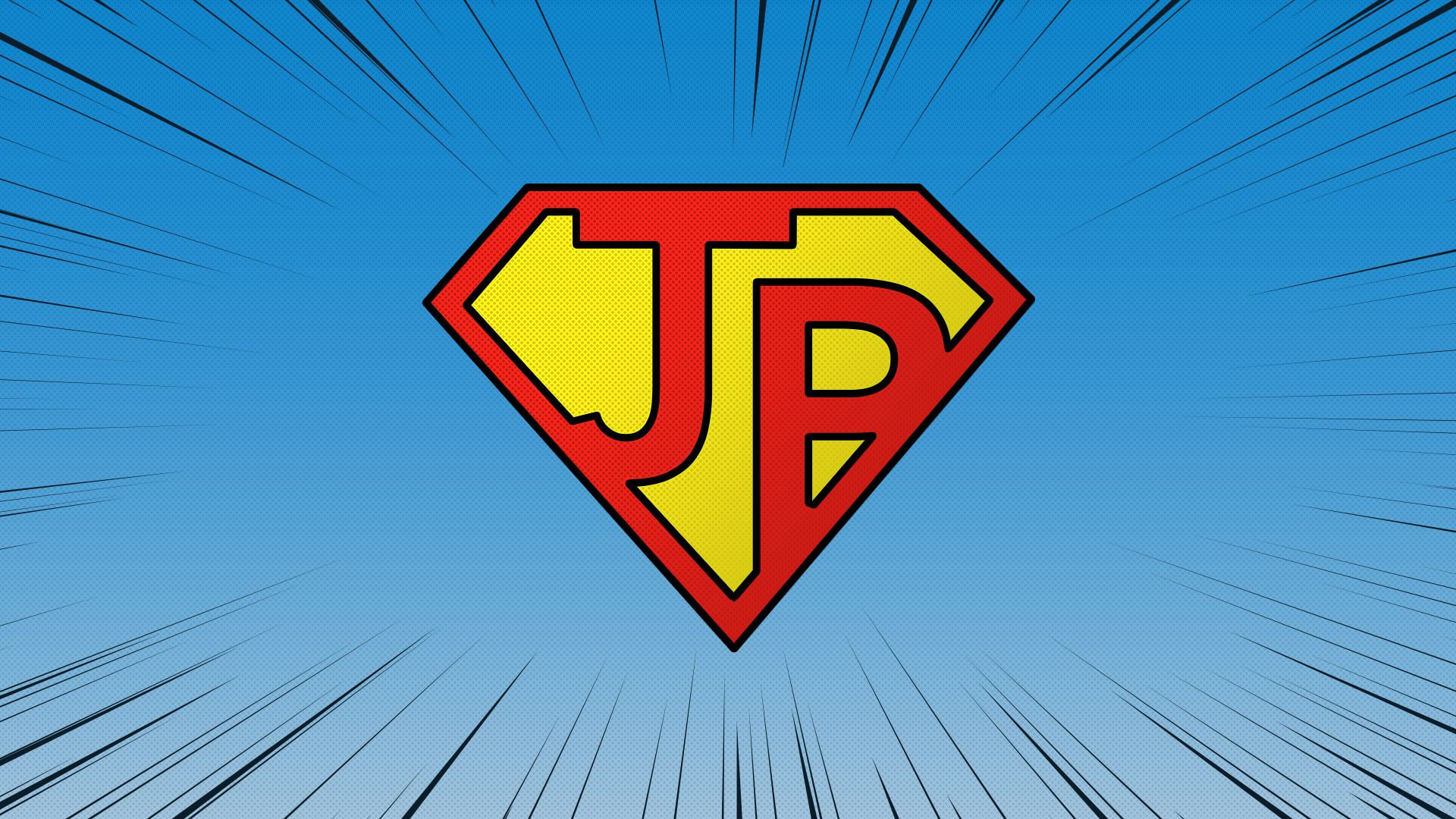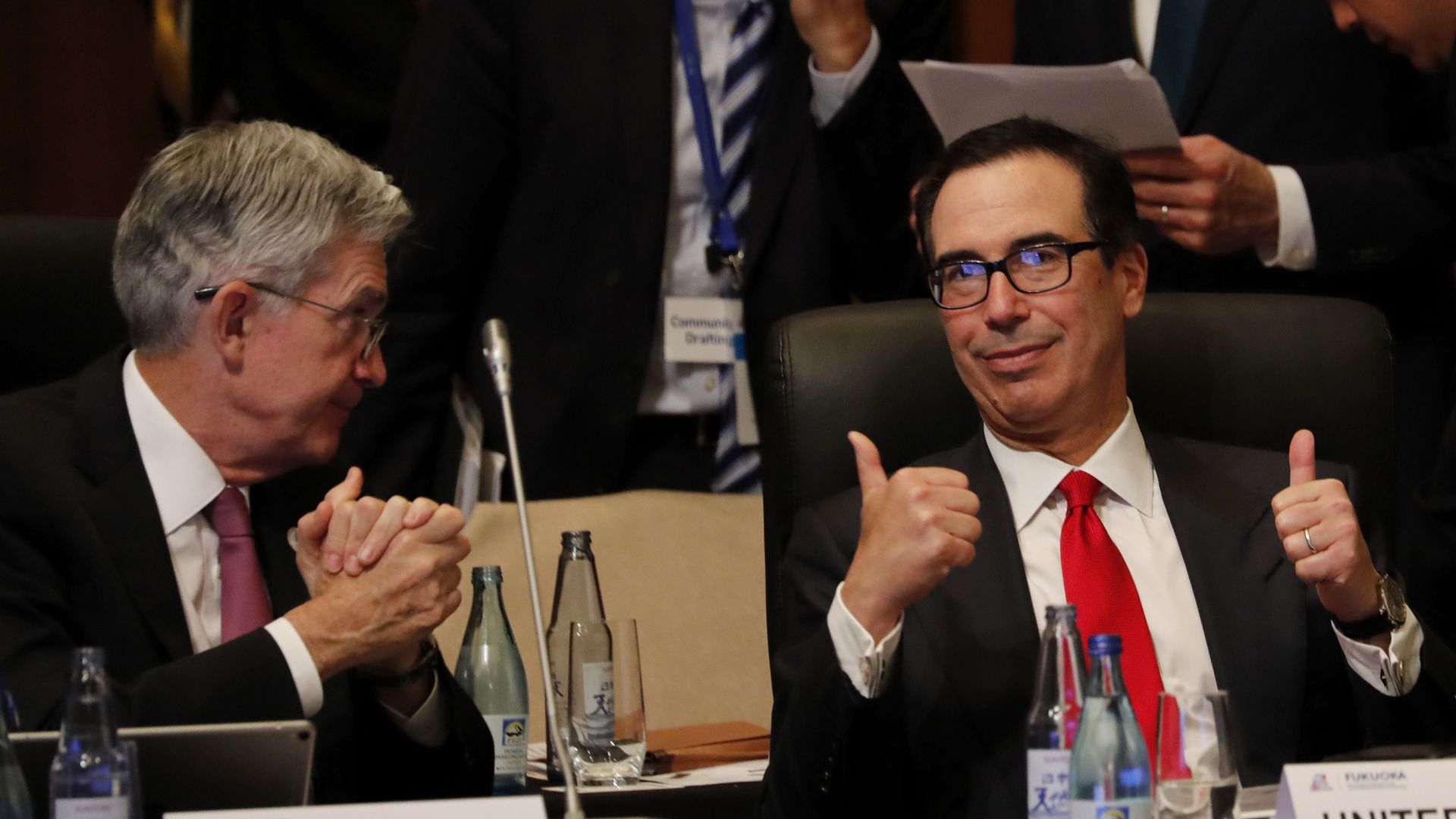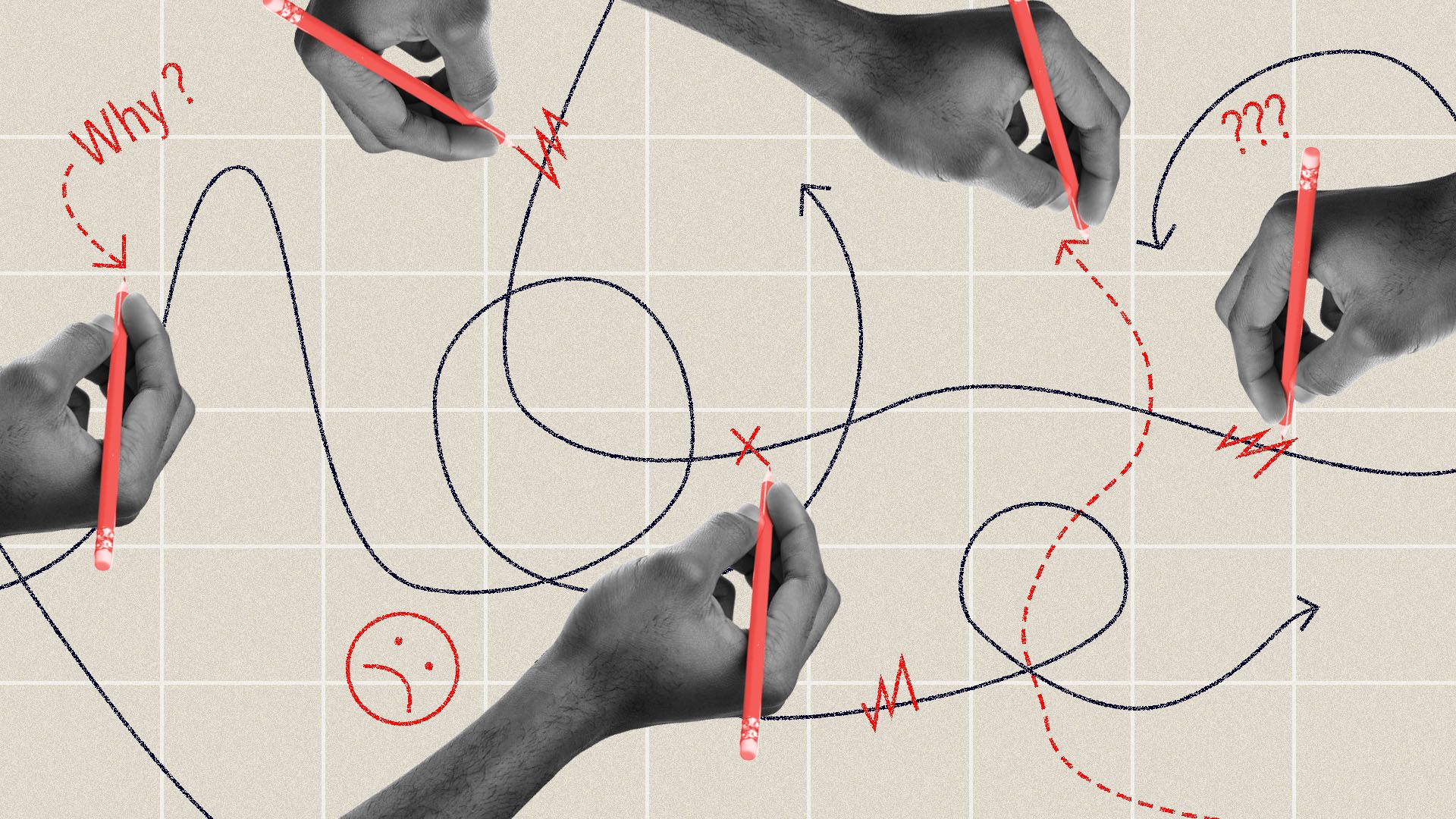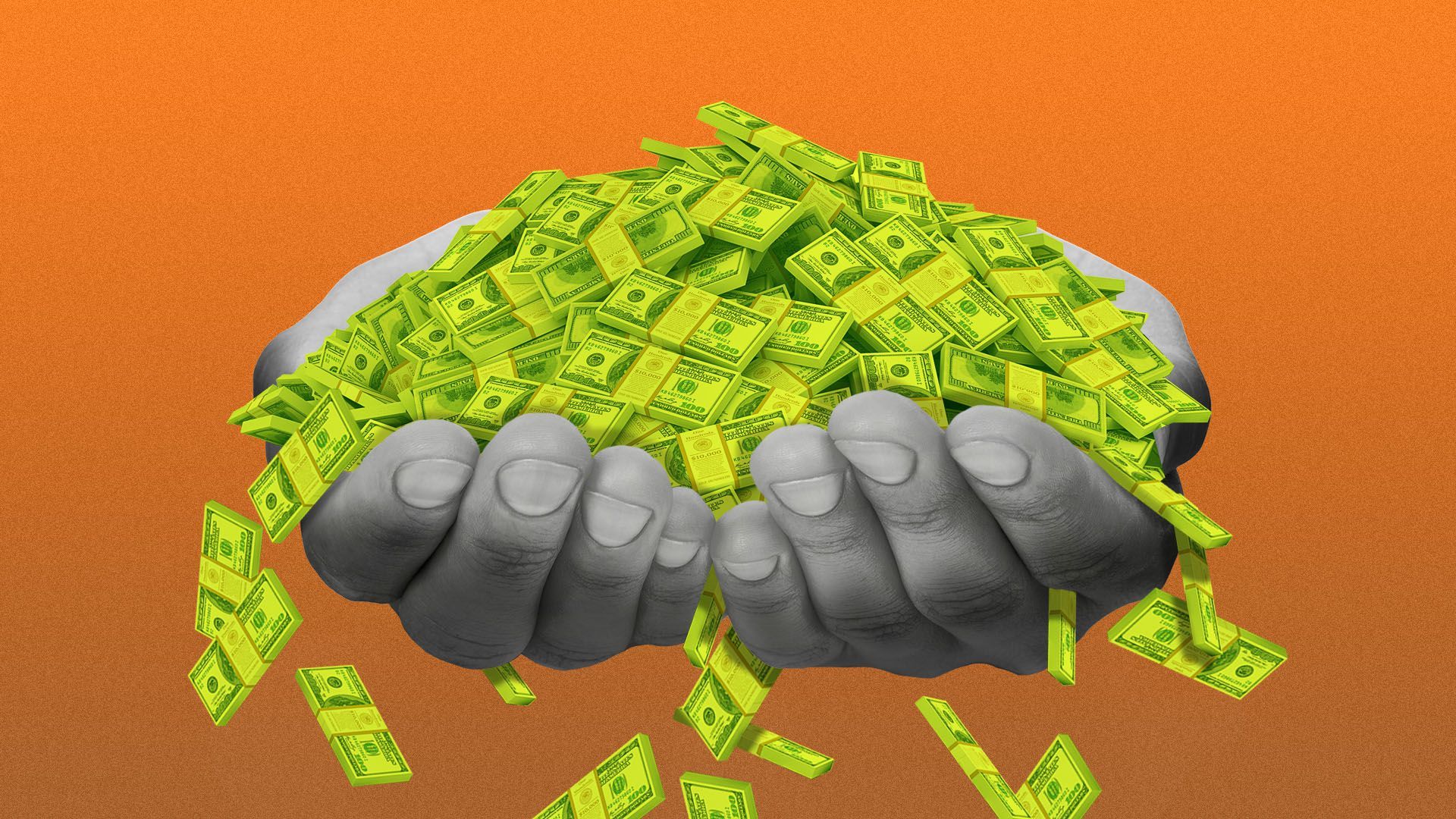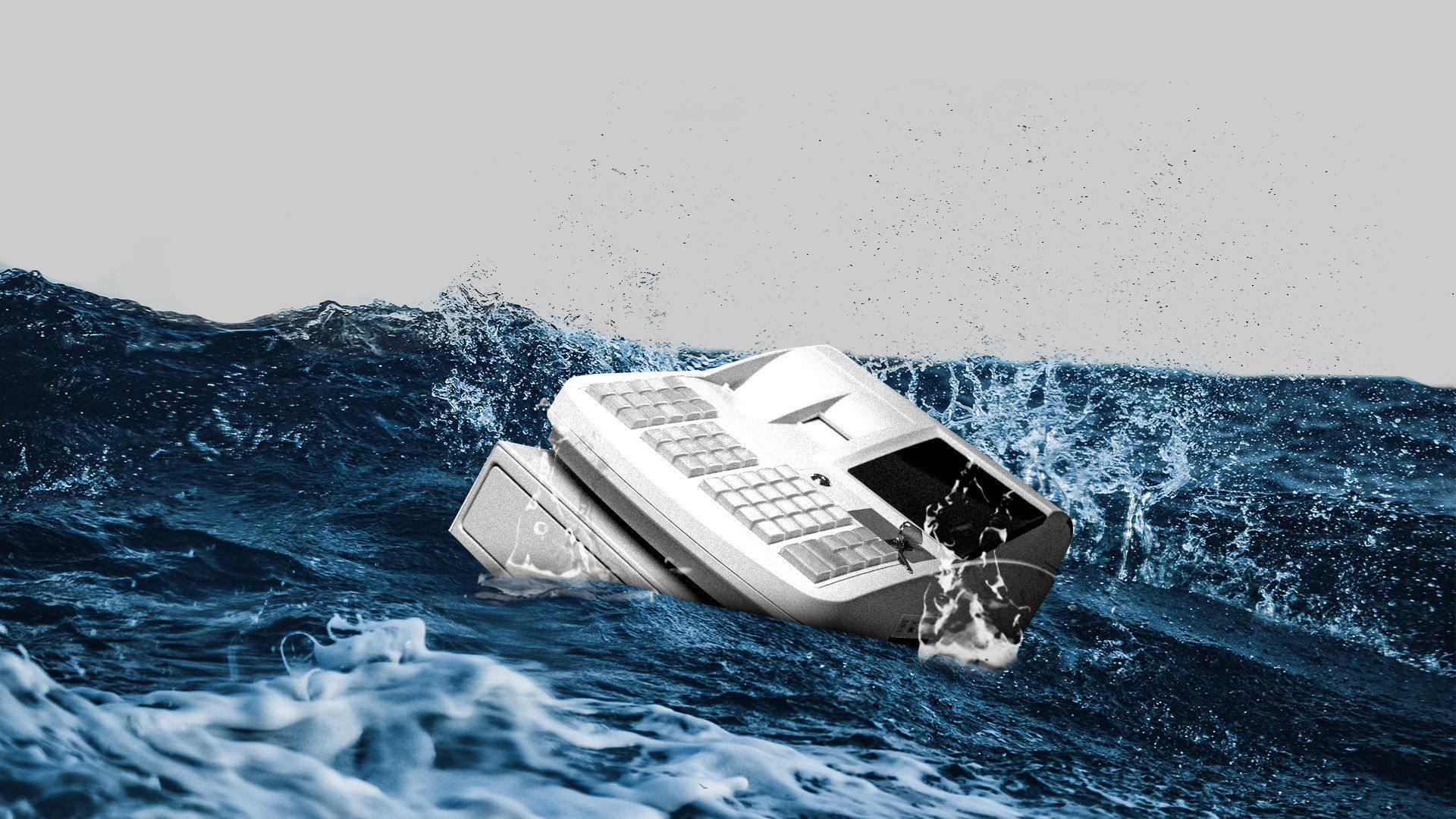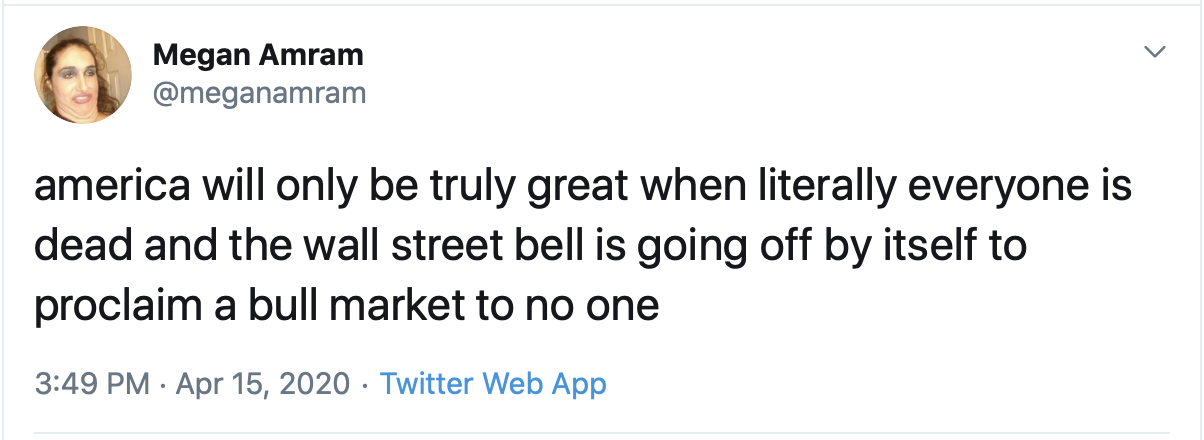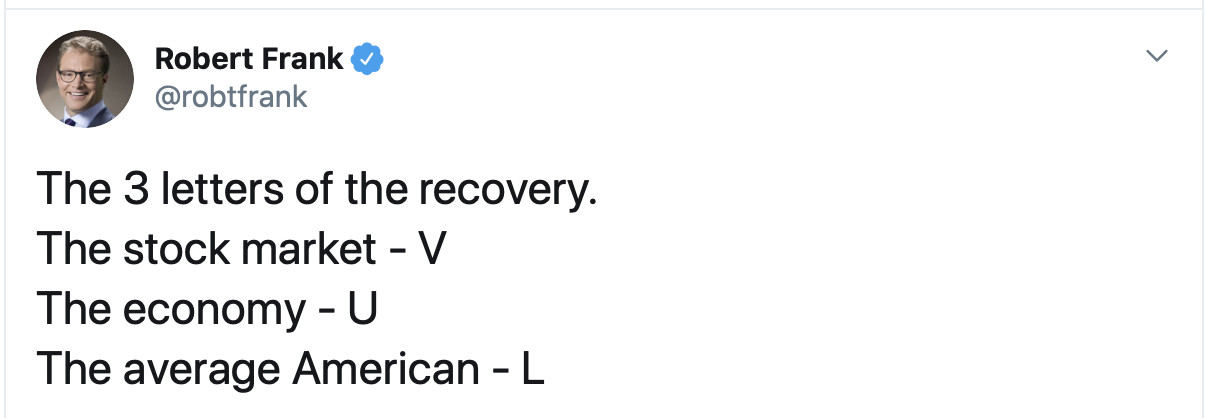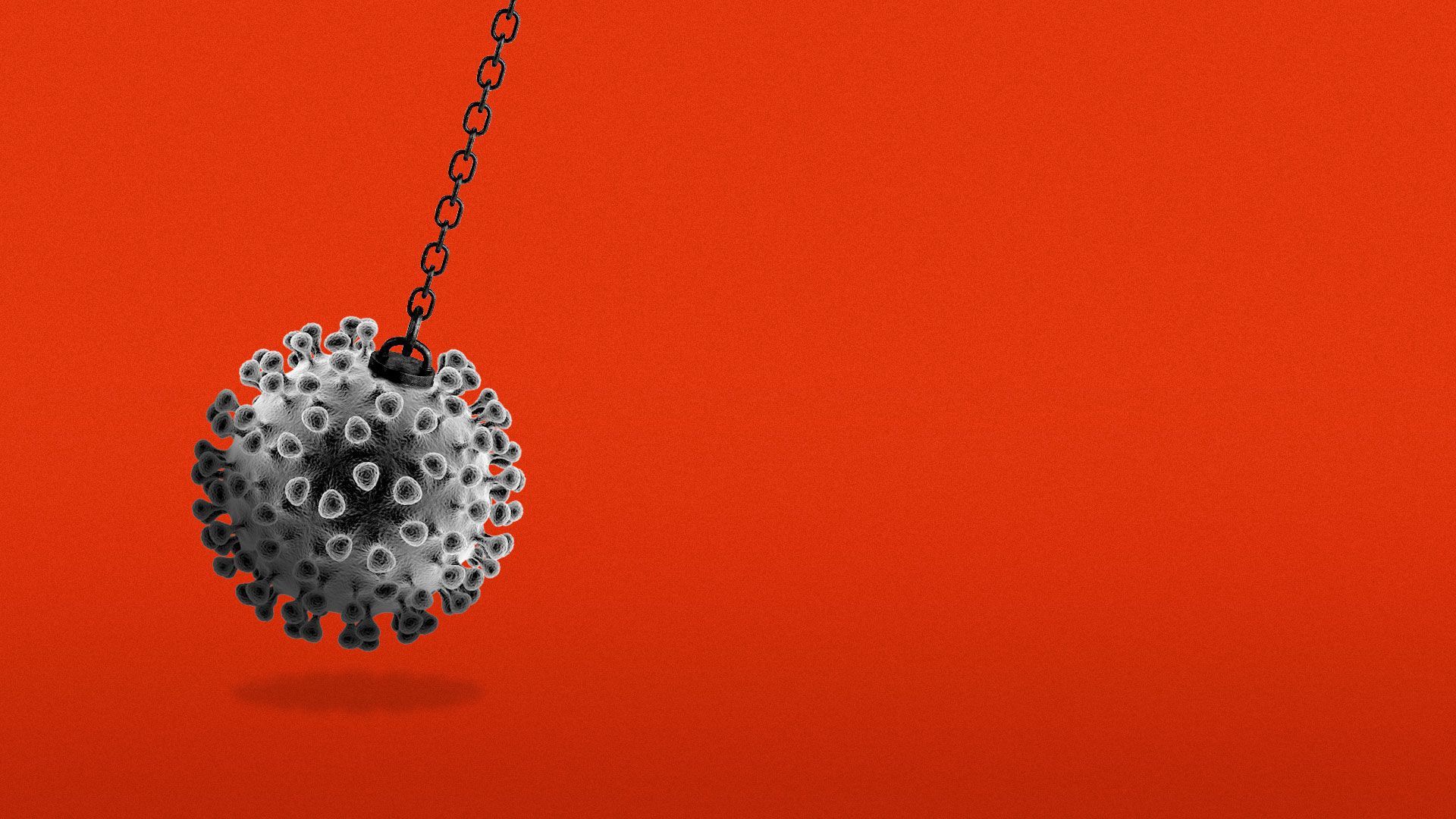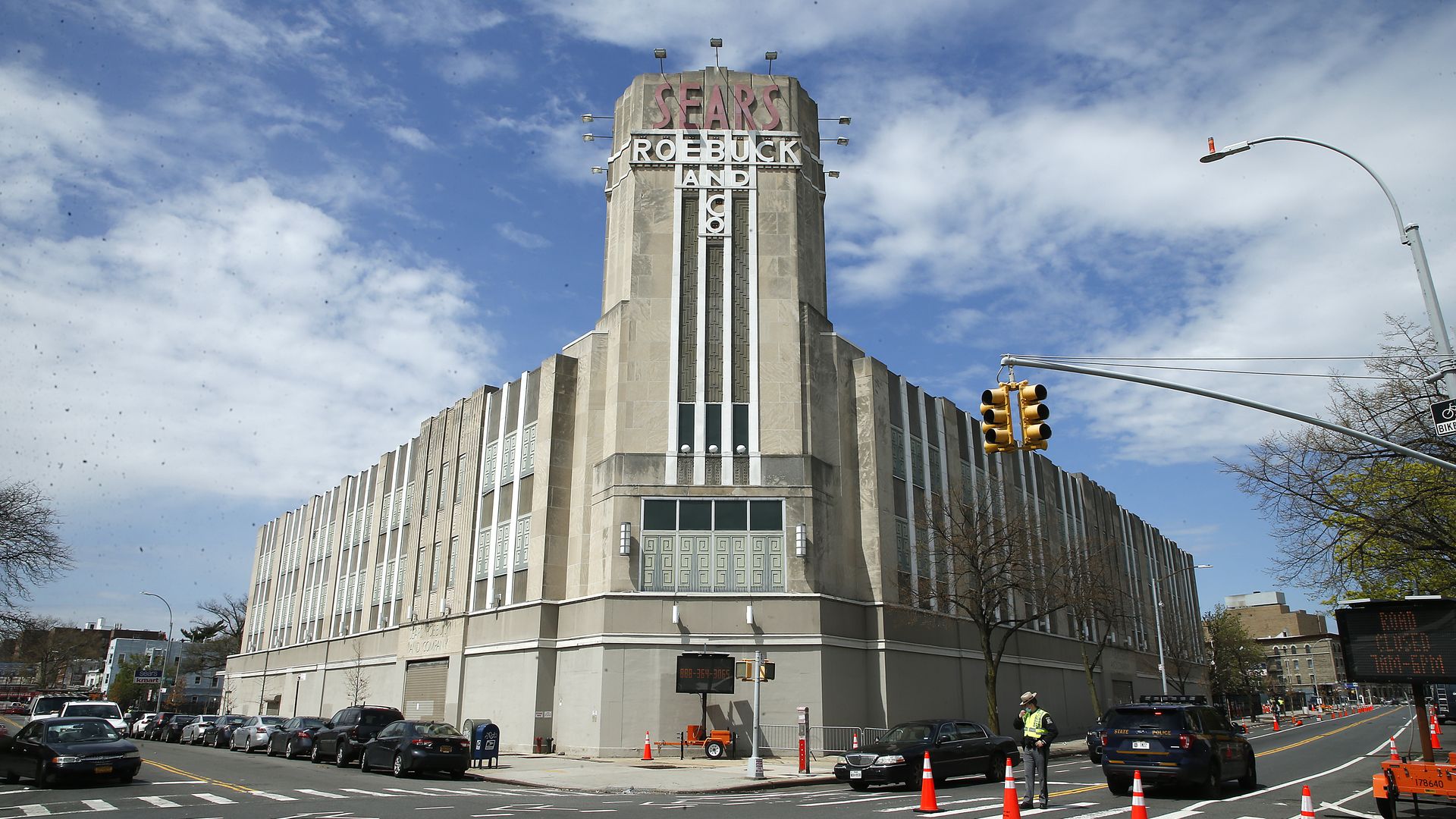Axios Capital

April 16, 2020
Many thanks to everybody who wrote in to remind me that it was "Super Mario" Draghi, not Jean-Claude Trichet, who in 2012 famously pledged "to do whatever it takes to preserve the euro," thereby marking the beginning of the end of the euro crisis.
- This week, I look at Jay Powell, whose superpowers look like they're even greater than Draghi's. Also: virus uncertainty, corporate dividends, overwhelmed small businesses, and stock market tweets. All in 1,900 words or about a 7-minute read.
1 big thing: Powell, hero of the coronavirus crisis
Illustration: Eniola Odetunde/Axios
"This is as timely a policy response as there has been in the history of central banks".— Former Fed staffer Vince Reinhart, now BNY Mellon chief economist
Move over, Anthony Fauci. Fed chair Jay Powell has come into his own in recent weeks, acting with uncommon and entirely unexpected speed and boldness.
- He was early to grok the magnitude of the crisis, rapidly running through every tool that Ben Bernanke used in 2009 and then coming up with more of his own.
Why it matters: The federal government has in general not acted with the alacrity that the fast-spreading coronavirus demands. But Powell has — and he's done so with moral clarity, talking about how "people are undertaking sacrifices for the common good. We need to make them whole."
The ability to move aggressively when facing a real crisis — while not overreacting to a mere stock-market tumble — is arguably the most important quality in any Fed chair.
- Flashback: In 2013, when President Obama was choosing between Larry Summers and Janet Yellen for Fed chair, one of the strongest arguments in favor of Summers was that he was seen as "the candidate with the best experience to deal with international economic crises."
- Summers would have failed the coronavirus test had he been Fed chair last month, at least judging by his public comments. He was scathing about Powell's decision to cut rates on March 3 in response to the crisis, saying that "when you've only got limited ammunition, you've got to conserve it."
- Summers said he was more worried about the effect of the cut itself (the "risk that you're going to scare people with the magnitude and gravity of your action") than he was about the virus.
Bernanke was by all accounts an excellent crisis-era Fed chair, but even he moved extremely slowly by Powell standards.
- The day after Lehman Brothers filed for bankruptcy, for instance, Bernanke's Fed held rates steady at 2%, noting only that "economic growth appears to have slowed recently," and worrying about "the upside risks to inflation."
Be smart: After the financial crisis, Congress attempted to curtail much of the Fed's authority to lend to nonbanks — something that Powell has been doing more of than Bernanke ever did.
- Since the Dodd-Frank Act, all such lending needs to be approved by Treasury.
- What they're saying: "Dodd-Frank turned out to be a blessing in disguise," says former Fed economist Steven Friedman, who now works at MacKay Shields.
- Forcing Powell to get Treasury signoff for its programs "has actually provided the Fed with tremendous political cover to expand its balance sheet rapidly in response to the crisis and really take risks," Friedman tells Axios' Courtenay Brown.
- "The Fed can point to the administration if there’s ever any criticism of their actions during the crisis," Friedman adds.
The bottom line: How does the current Fed compare to Bernanke's?
- "Powell's Fed is twice as aggressive and more than twice as fast," says former Fed staffer Claudia Sahm, who's now at the Washington Center for Equitable Growth.
- The crisis has effectively silenced Powell's critics who initially saw him as a B-team player, not in the same league as the likes of Yellen and Alan Greenspan.
2. The man behind the borrowing
Steven Mnuchin on the right. Photo: Kim Kyung-Hoon/AFP via Getty Images
Treasury Secretary Steven Mnuchin has played a vitally important role in enabling much of the Fed's emergency lending.
State of play: By allocating $195 billion from the stimulus package to a series of borrowing vehicles funded by the Fed, he has been able to mobilize 10 times that amount — $1.95 trillion — to support corporate and municipal America.
- In principle, there's no reason why the Fed can't lend even more than that. So long as Mnuchin is happy to take the credit risk, Powell has shown that he's happy to lend.
- If losses in the borrowing vehicles turn out to be larger than the amount Treasury has put in, the Fed will just end up paying Treasury less money at the end of the year.
- What they're saying: "Monetary policy and fiscal policy are closely joined at the hip in the crisis," says Friedman. "As they should be."
Why it matters: By tying itself so closely to Treasury, Powell's Fed has lost a lot of its independence. It's now taking actions — like lending to junk-rated companies — that look a lot like fiscal policy.
- Desperate times call for desperate measures. But already critics are saying that the Fed "has failed and is fundamentally broken." Powell will never be able to prove to their satisfaction that his actions were necessary to save the economy.
3. The epistemic crisis
Illustration: Sarah Grillo/Axios
"What I say right now may not be true tomorrow."— USC's Edward Jones-Lopez, explaining the science of the virus to L.A. Times' Deborah Netburn
If you haven't changed your mind, you haven't been paying attention. The coronavirus crisis has moved so fast, in so many different directions, that everybody who's intellectually honest has had to recalibrate their beliefs multiple times to take account of new information.
Why it matters: Known unknowns are almost inconceivably enormous. How many people will die of COVID-19 in the U.S., for instance? The answer could be tens of thousands, roughly where it is now — or it could be millions, if no vaccine is found and the virus ends up infecting most of the population.
The big picture: Extreme actions — whether they come in the form of U.S. monetary policy or strict New Zealand-style lockdowns — are often taken not because of what we know but more because of what we don't know.
- As we reopen the economy, we will be relying on extremely fuzzy data.
- Even if we get widespread testing both for the disease and for the antibody, those tests have false negative rates as high as 30%. If you have all the symptoms of COVID-19, for instance, but your test comes back negative, what is the probability that you have it? No one really knows the answer.
Between the lines: During a public health crisis, it's vital that the population as a whole trusts and believes in what the government is saying. But in this crisis, leaders cannot know the truth with any accuracy. No one does.
- New York Gov. Andrew Cuomo went from begging for ventilators in March to giving them away in April. That's not because he was wrong; it's because the epidemiological models in March had very large error bars. As a leader, Cuomo had to err on the side of caution.
The bottom line: We need to trust the individuals in authority, or else their actions will never have any real effect. If what they say one day (you must wear masks!) contradicts what they said the previous day, that just means that they're responsibly changing their message in the light of new information.
Go deeper: FiveThirtyEight has a great comic strip about the difficulty of modeling this crisis.
4. Cash isn't always king
Illustration: Sarah Grillo/Axios
One side effect of uncertainty is a desire for cash. Because companies have very little visibility into the future, a large cash cushion will help them survive as many future worlds as possible.
Why it matters: The desire for cash helps to explain record corporate borrowing, as well as money-saving activities like furloughs, layoffs and pay cuts. It also explains why companies have almost entirely stopped buying back their own stock.
- But there's one cash-burning habit they can't break: Paying dividends.
By the numbers: Of the 500 companies in the S&P 500, only 10 are expected to suspend their dividend entirely in the second quarter, and only 21 are expected to cut their dividend at all.
- Some companies, including Johnson & Johnson, IBM and Apple, are planning to increase their dividend this quarter.
Context: Once upon a time, stocks were owned mainly by individuals, many of whom lived on their dividend income. Companies took that responsibility seriously: AT&T laid off 185,000 workers in the 1930s, but never cut its dividend.
- Today, however, buybacks are more popular than dividends, and retaining earnings for a few quarters during a global pandemic seems entirely prudent. After all, why borrow money on the capital markets when you can just retain your earnings instead? You can always pay those earnings back out when the crisis is over.
- America's largest banks are happy to voluntarily suspend share buybacks entirely — but not to cut their dividends. It seems the two things aren't quite as equivalent as analysts have been asserting.
- Minneapolis Fed president Neel Kashkari, a key player in the 2008–9 crisis response team, says the biggest U.S. banks should suspend their dividends and raise $200 billion in new capital. Don't hold your breath, though: This is one area where Powell has been uncharacteristically meek during the crisis.
The bottom line: There's something atavistic about the way companies cling to paying dividends, even during a crisis. Perhaps these companies should take a page out of Warren Buffett's book. He only ever paid one dividend, in 1967, and has regretted it ever since.
Bonus: The everything stock


Amazon's share price hit a new all-time high this week. It rallied 42% in one month, from a low of $1,638 on March 16 to a high of $2,331 on April 15.
- Netflix, too, is at an all-time high.
Neither stock has ever paid a single dividend.
5. Small businesses overwhelmed by the pandemic
Illustration: Aïda Amer/Axios
Among the many paradoxes of this crisis: Many essential small businesses are shuttering — not because business has died down, but because they're overwhelmed by a spike in demand, Axios' Erica Pandey reports.
State of play: "They're trying to limp along because they've been deemed essential," says Beth Milito, senior executive counsel at the National Federation of Independent Business. "But finding staff willing and able to come in is challenging."
What's happening: Dozens of laundromats across New York City have closed down either because they're too busy or because they're concerned about employees' health, reports The City.
- Legendary New York food store Kalustyan's has closed for the first time in 75 years due to the high volume of orders it has been receiving.
- Small trash collectors around the U.S. are dealing with larger-than-ever volumes of residential garbage. Republic Services, a waste management company with operations in several states, says it expects volumes to increase by 30% during the pandemic.
- Many child care facilities that are open to care for the kids of health care workers and other essential staff are struggling to maintain required ratios between children and caretakers, and may be forced to close.
- Small trucking and freight companies are seeing unprecedented demand for package delivery as the entire country shops from home, but they're also facing employee shortages as workers gravitate to the giants paying premium wages for tens of thousands of new truckers and warehouse workers.
- Bodegas and small grocers who are fielding the same panicked, bulk shoppers as the big chains are often unable to restock their empty shelves as the food suppliers focus on keeping the Costcos and the Walmarts stocked, Milito says.
The bottom line: Even in booming industries, small businesses are in deep trouble.
7. Coming up: China's economy shrinks
Illustration: Eniola Odetunde/Axios
Axios' Courtenay Brown writes: Tonight we'll learn just how badly the coronavirus pandemic ravaged China's economy in the first quarter.
By the numbers: Analysts expect the government to announce the economy shrank by as much as 5% year-over-year.
- China has never reported a negative quarter of economic growth since it started releasing statistics in the 1990s. The last time the economy shrank was likely during the Cultural Revolution in 1976.
8. Building of the week: Sears Building, Flatbush
Photo: John Lamparski/NurPhoto via Getty Images
The Art Deco Sears building in the Flatbush neighborhood of Brooklyn was opened by Eleanor Roosevelt in 1932, in the midst of the Great Depression. She was reportedly the store's first customer, buying “a pair of baby booties.”
- The architects were from the Chicago firm of Nimmons, Carr & Wright. One of their innovations was to ensure there was a large amount of on-site parking, to accommodate suburbanites arriving in their cars.
- The store is now closed, but the parking lot is open. It's being used as a drive-through COVID-19 testing facility.
Sign up for Axios Capital

Learn about all the ways that money drives the world
